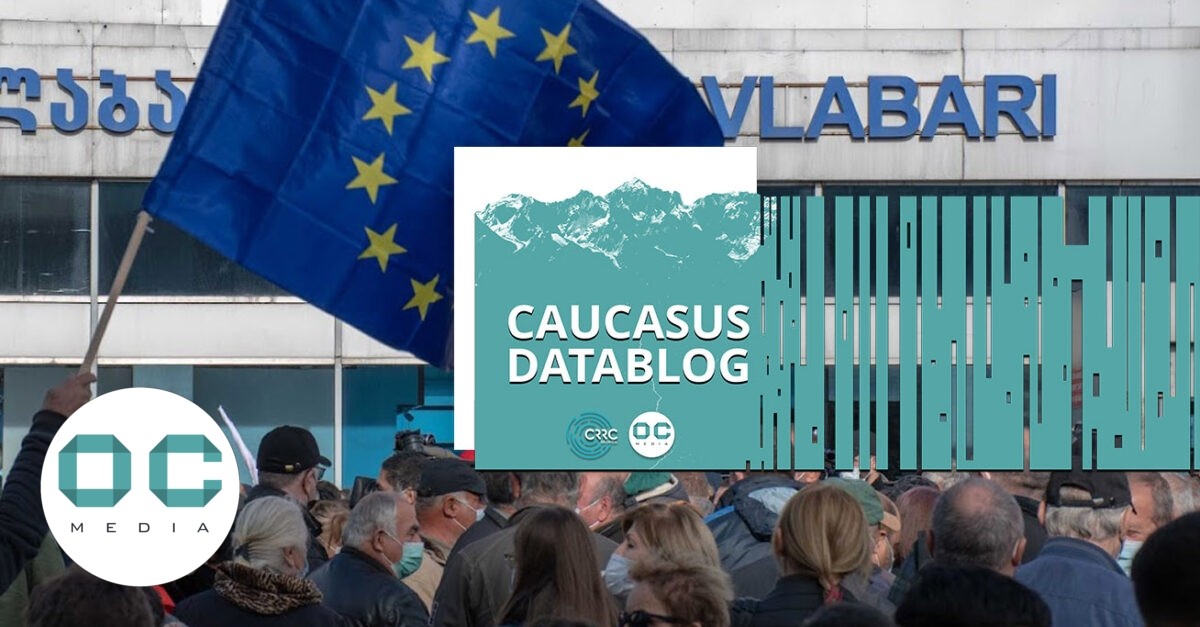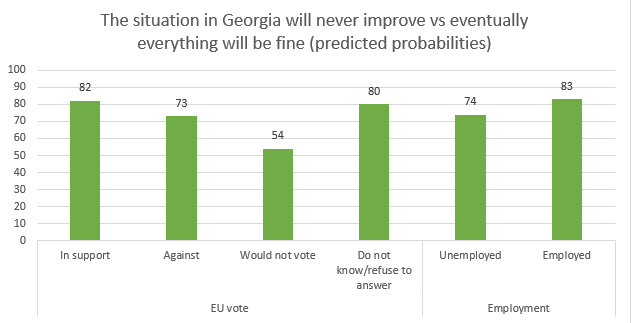
Georgians who support the country joining the European Union are more optimistic about the country’s future, a recent CRRC survey shows.
The 2021 CRRC and Europe Foundation Knowledge of and Attitudes toward the EU in Georgia also shows that a strong majority of the Georgian population supports the country joining the European Union.
The survey asked respondents whether they would vote for membership in the European Union if a referendum were held tomorrow. Overall, 77% reported they would vote for membership, 8% that they would not, and 6% that they would not vote. A further 9% reported that they were uncertain and 1% refused to answer.
To measure optimism about the future, people were asked whether the situation in Georgia would never improve or whether, eventually, everything would be fine. In total, 18% reported that things will never improve, while 77% reported that eventually everything will be fine and 5% either did not know or refused to answer.
The data shows that people who would vote for EU membership are more hopeful about the future of Georgia. People who would vote for membership in the European Union were nine percentage points more likely to be optimistic about the country’s future than people who reported that they would vote against EU membership. People who reported that they would not vote were the most pessimistic, being a full 28 percentage points less likely to report optimism for the country’s future.
People who were employed were nine percentage points more likely to have a positive outlook than people who were not working. There were no meaningful differences in support between men and women, people residing in different settlement types, or in different age groups, controlling for other factors.

The reverse is also true: people who are optimistic about the country’s future would be more likely to vote for EU membership. People who are optimistic about the country’s future are 10 percentage points more likely to report that they would vote for the country’s membership in the European Union, controlling for other factors.
Ethnicity also predicts voting intentions. Ethnic Georgians are 21 percentage points more likely to support joining the EU than ethnic minorities.
Employment status also predicts voting intentions, with employed people being 12 percentage points more likely to report that they would vote for EU membership.
There were no meaningful differences in support between men and women, people residing in different settlement types, or in different age groups, controlling for other factors.

While the data shows that Georgians who would vote for EU membership are more optimistic about the country’s future more broadly, whether those hopes will be dashed awaits a decision on whether Georgia receives EU candidacy status later this month.
The views expressed in the article do not necessarily reflect the views of CRRC Georgia, Europe Foundation, or any related entity.
Note: The above analysis is based on logistic regression models that include age (18-35, 35-54, 55+), settlement type (capital, urban, rural), sex, employment, optimism about the future, ethnicity (ethnic Georgian, ethnic minority). Willingness to vote for the European Union and optimism about the future were assessed in separate models, which also included these controls. The data this article is based on is available here.








